Parvo is a devastating disease. It’s very expensive to treat and often does not have a good outcome. We share our hope and experience with canine parvo to offer support to you trying to care for your pup at home.
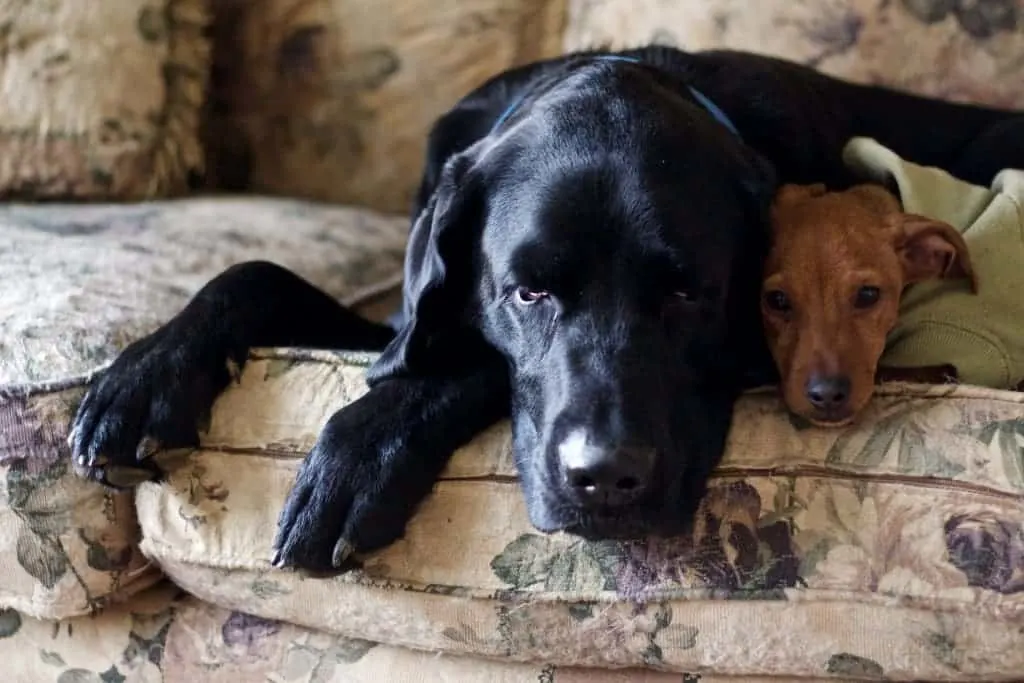
Canine Parvo progresses FAST and you need to get your dog into the vet ASAP and get the diagnosis and treatment plan started. Do NOT wait for it to get worse. The earlier you treat this virus the better your pups chances of recovery.
Parvo Symptoms:
This infographic Lists the common symptoms for Canine Parvo in puppies and adult dogs. Your dog may show some or all of these and other symptoms that don’t make sense (secondary illnesses are common with Parvo).
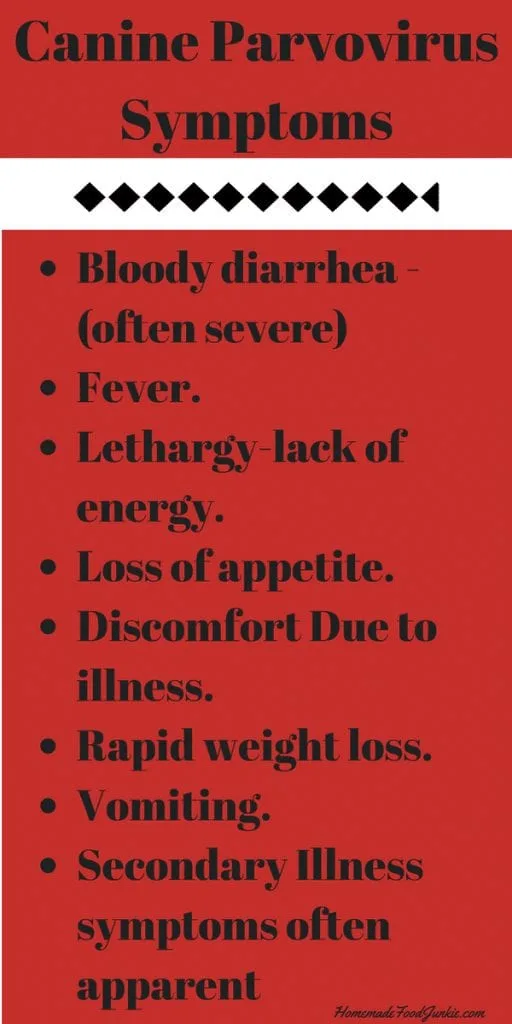
If you see these signs of parvo in your dog do not wait! Get to a vet fast.
Carson’s Parvo Recovery Journey:
Please also read the comment section below this post for more personal experiences, tips and advice from others who have been through Canine Parvo.
We rescued a beautiful Chiweenie (Chihuahua and Dachshund mix) from a shelter in Texas in October 2015. He was 17 weeks old when we picked him up from a PetCo rendezvous point. The 3 hour drive to pick him up was filled with excitement and anticipation.
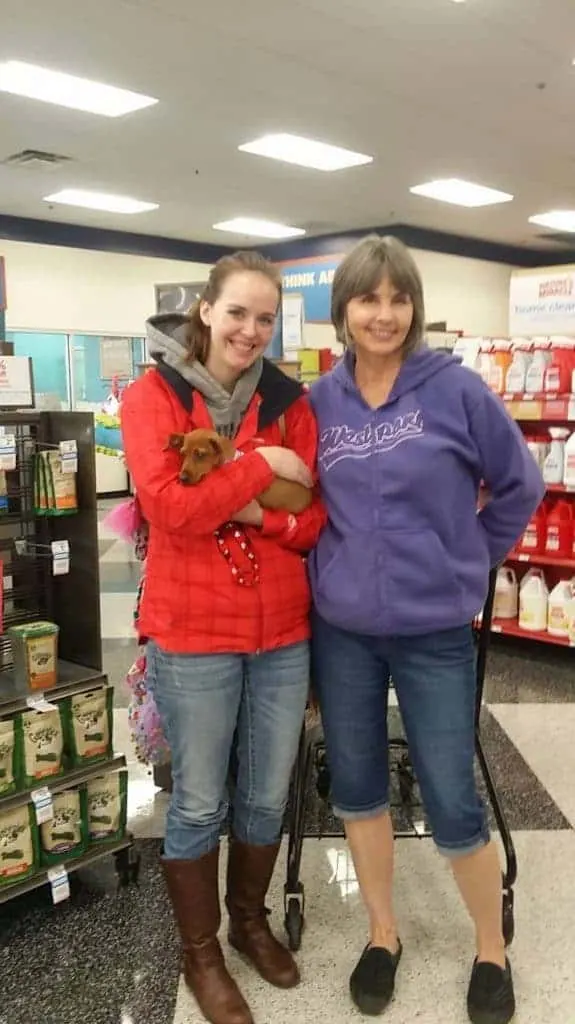
When we got to the store, they handed us an adorable brown puppy that was quiet in our arms and trembling. Poor scared baby. We bought him all his puppy stuff, food and toys and headed back up the freeway.
A day after he was brought home, he started appearing very lethargic and seemed to be having increased trouble with wheezy breathing and snuffling.
He wasn’t a bouncy and healthy looking puppy and seemed too warm. Even Sherman looked concerned for lil Carson and snuggled him. Time to visit the vet.
VET DIAGNOSIS: Our new puppy had advanced pneumonia and a severe case of worms. He also was in the beginning stages of Parvo
The vet quickly outlined Our options:
- Admit him to the animal hospital for a few thousand dollars where they will give him fluids and antibiotics to combat the Parvo and pneumonia. (The vet gave NO guarantee of survival. In fact he had very little hope even a hospital stay could save our dog.)or…
- We could treat him at home and try and save him. Keeping in mind that he will almost certainly die with this option.
We couldn’t afford the hospital, so we chose to treat him at home. He would have love and whatever help we could give him.
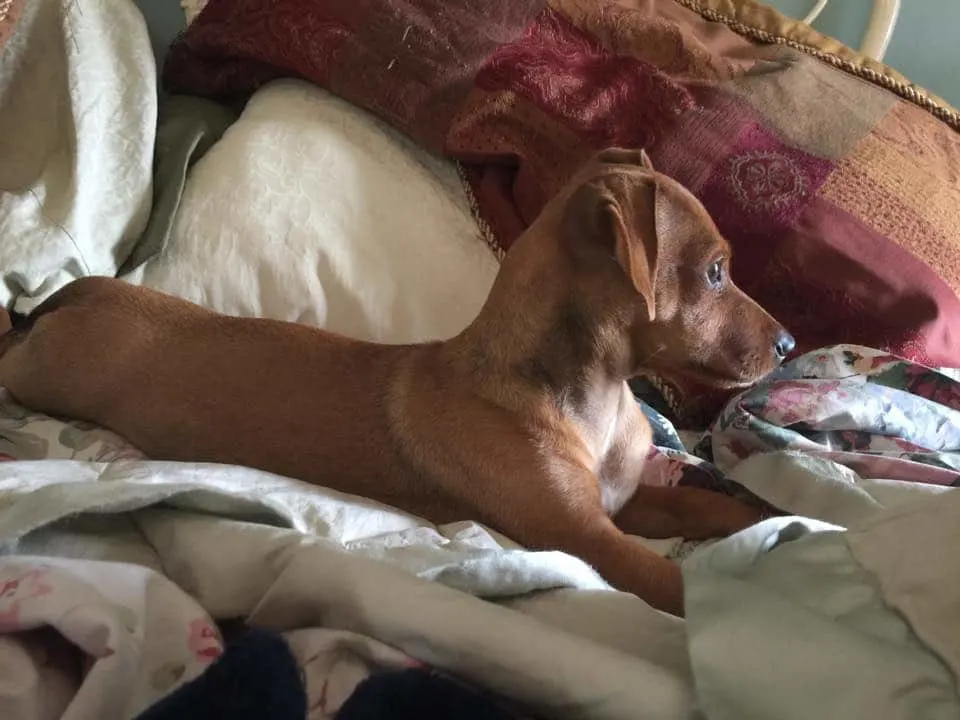
If you treat your puppy at home…BRACE YOURSELF. This is a non stop 24/7 experience. Get as much help from your vet as you can afford. Many vets are flexible and will care for the pup during the day so you can care for them after work. But I have no idea when you will sleep.
We went round the clock treatments since we had no IVs for hydration.
Canine parvo recovery support for your pup requires constant and relentless care by you until all symptoms are finished and even longer if the dog is still ill with secondary problems as our dog was.
NOTE: By the time it was all said and done we still spent several hundred dollars on our canine parvo recovery journey. Home care was cheaper than vet hospital. But not cheap.
At The Onset of Symptoms:
We had no idea what to do. Mom hugged the pup and syringed water down him while I consulted Google.
There were several reports of Tamiflu working on Parvo when administered orally via a liquid suspension within the first 48 hours of symptoms appearing. Here is a scientific article describing it’s effectiveness and recommended dosage. Your vet will have to prescribe it.
We got on the phone with the Vet and asked him for a Tamiflu prescription. He was skeptical at first, but he Found a study done on the positive effects of Tamiflu for dogs with Parvo.
He did end up writing us the prescription with proper dosage. He may have saved Carson with that prescription.
What happened next was one of the most physically and emotionally taxing weeks of our lives. We nursed that puppy 24 hours a day. I stayed overnight to help and We both syringed fluids and medicine down his throat every 15 minutes during the day, and every hour all night long.
Meanwhile, I spent countless hours doing research on the Internet and constantly watching him for dreaded new symptoms appearing. It was grueling and emotionally devastating but we kept it up. Neither of us would quit.
Learning about Canine parvo signs was a big help. We watched for the signs of progression and the timeline of the stages of the disease so we could move forward with him and know where he was in the process.
- The rule of thumb is 72 hours for the ACUTE symptoms to run their course. This timeline can lengthen so don’t get discouraged. Get more help!
- If the dog survives through the symptoms be encouraged the worst is over for the Parvo virus.
- Do NOT stop treatment unless cleared by a vet. Parvo is very debilitating and the dog needs a LOT of Long term support to get back to health.
- Secondary problems can be worse than Parvo.
CANINE PARVO RECOVERY:
There is NO specific cure for Parvo. The virus must run its course. The following guide will help you see the areas of support your pet needs to have the best chance of survival. Here is an infographic summary of the care a pup needs in recovery from parvo.
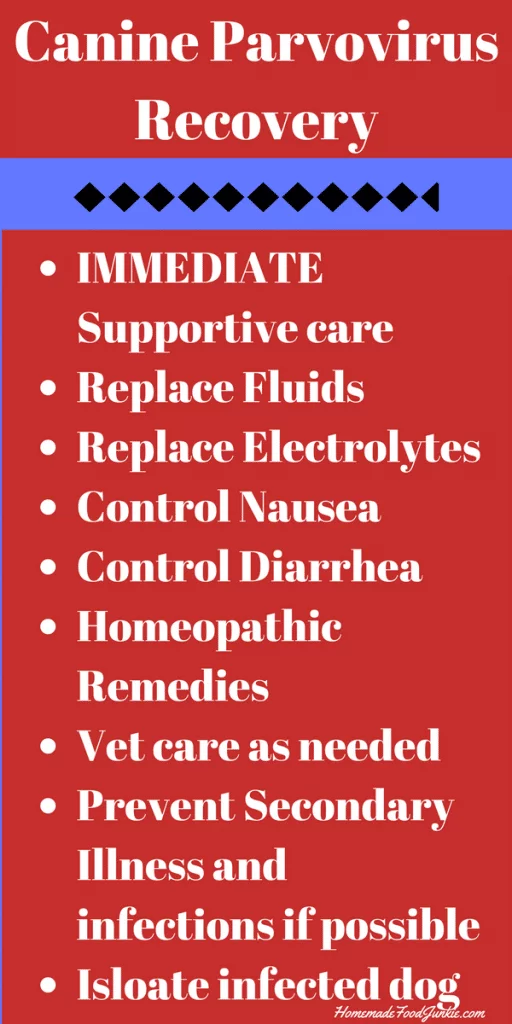
BACK TO OUR STORY:
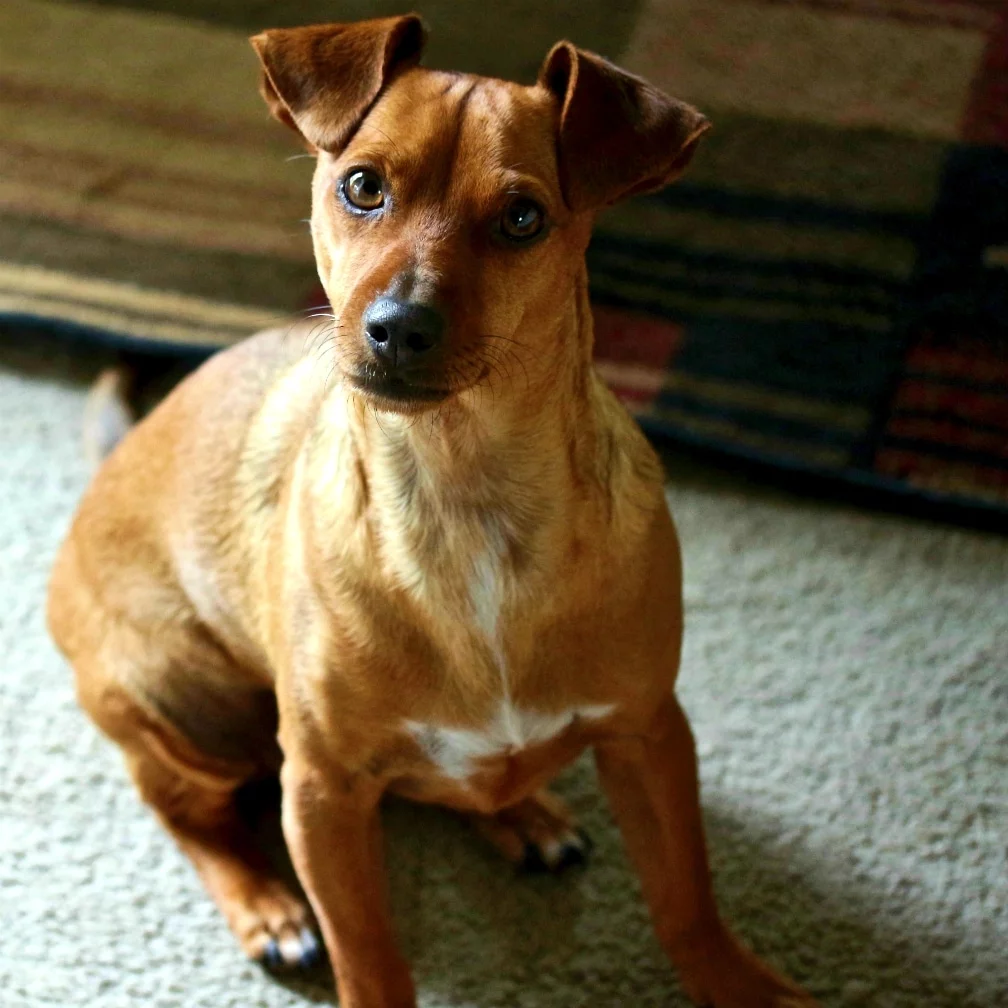
Carson’s Positives:
- Carson had already had his first round of Parvo immunizations.
- We caught the disease before he was symptomatic with bloody diarrhea and vomiting.
- He was 17 weeks old and a little stronger than a brand new 7 or 8 week old puppy.
- He is a small mixed breed dog that is said to have one of the better chances of survival (large breeds often don’t fare as well as small breeds with this disease. (Dehydration is a HUGE issue-get Sub cu fluids in OFTEN for your large breed pup).
Carson’s BIG negative:
- He not only had Parvo, he also had a nasty case of pneumonia and BAD worms.
- Carson was weak, stressed and tired from traveling in a van all the way from Texas to WA.
- He was underweight and malnourished going into this disease.
- The vet held little hope for his survival and adopted a hands off attitude once we decided on a home cure.
Parvo Symptoms and progression:
- Severe Lethargy
- Fever
- Dehydration
- Loss of appetite
- Diarrhea (We only saw blood in his stool twice, and it was a trace amount. We believe the quick administration of Tami Flu kept his intestines from getting too inflamed.)
- Vomiting. This became fairly severe. We held him upright and motionless in our arms in a chair all day long so he wouldn’t get up and vomit.(He wanted to but managed to keep some of the fluids he needed down). You will need the vet to prescribe an anti nausea medicine. The Vibactra also helped with nausea.
Secondary Issue:
Secondary Issues often complicate Parvo recovery.
Pneumonia to the degree Carson had it will kill all on its own. Carson did nearly die of once the Parvo was done with him.
- Thick Yellow fluid draining from his nostrils (it was an advanced case of pneumonia with lung scarring).
- Coughing/wheezing from pneumonia fluids filling his lungs and sinus.
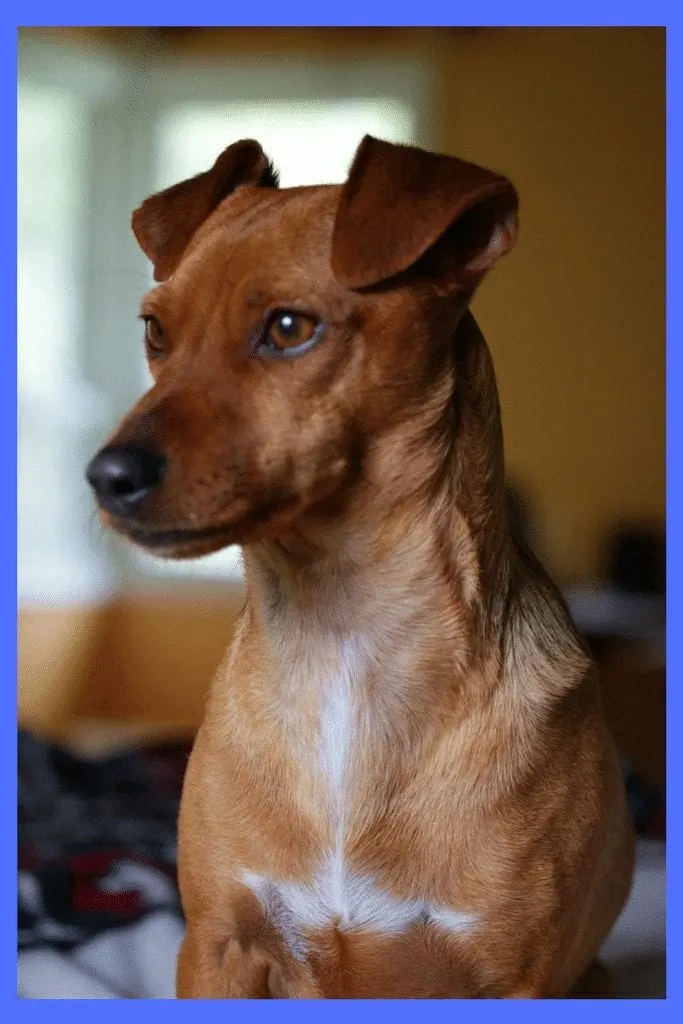
Our Home Treatment Method for Canine Parvo:
Administering Tamiflu. We believe this was essential to minimizing the intestinal destruction of Parvo. The Tamiflu coats the lining of the intestines and stops the Parvo from shredding the intestinal lining. This ended up working really well and we only had 1 day where he had minimal blood present in his stool. (NOTE: If you can’t get hold of TamiFlu use Pepto Bismol. Your vet can tell you how much.)
Constant hydration: One of the biggest factors that leads to the demise of the dog is the quick and massive dehydration that results from the constant vomiting and diarrhea that a dog with Parvo will present.
We used a 25 ml syringe filled with water, and we pried his mouth open and shot it down the back of his throat every 15 minutes during the day and every hour all night long. Even so, we could not keep up with his fluid loss. Vets can do fluids through a sub cu bolus. That made all the difference for Carson.
Supporting the immune system and using anti nausea remedies:
we used holistic medicine that I found from this website. This medicine is called Paxxin (intestinal support) and Vibactra (Immune system support and anti-nausea). we HIGHLY recommend both of these homeopathic treatments for the support of your dog.
We ordered the medicines from Amazon. Parvo Virus Combo Pack – Parvaid and Vibactra Plus by Amber Technology.
If you don’t have 2 days to wait, start calling local pet stores and see if you can find it from someone local. Don’t wait to start administering this. Use them both until your dog is fully healed. The Vibactra is incredible at boosting the immune system fast.
Hydration boost from the vet:
We took our puppy back to the vet on day 3 to get a bolus of subcutaneous fluids pumped into him. Most vets should be willing to do this for your dog.
It’s not an admission to the hospital so less expensive. They had us bring Carson in the back door into isolation at lunch time when the vets were out and so were the other patients.
The bolus of sub cu fluids helped our puppy immensely. It will also give you a bit of relief from syringing fluids down your dog. Carson was only 4 pounds.
You need to make all this work for whatever dog you are supporting. Canine parvo recovery is all about the dog and whatever it needs.
The vet also prescribed a triangulation of antibiotics to attack Carson’s pneumonia as well as help with the Parvo. Carson brought a REALLY bad case of hookworms, whipworms and tapeworms from Texas. He was given Strongid to evacuate the worms before he was diagnosed with Parvo and had to be re-wormed several times over several weeks to completely get rid of them.
These secondary issues almost killed him. This is often the case with Parvo.
Canine Parvo weakens a pup and allows other secondary conditions to worsen and kill even after the Parvo is conquered.
Getting Food Started again:
When our puppy was finally ready to eat, we started him on a really bland diet of plain rice and chicken.
We even blended it up and syringed some down his throat. As soon as he was able to start keeping food down, his condition improved immensely.
We also got a hold of some local goat milk and kefir, this is great if you can get some to build the digestive tract back up again!
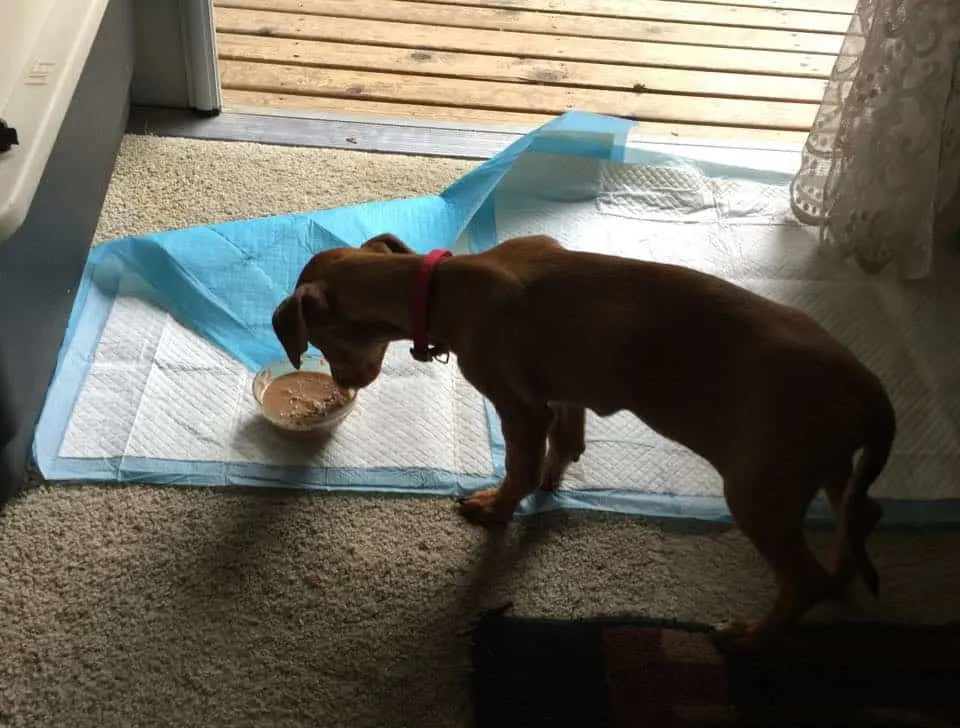
We continued to administer the Paxxin and Vibactra at home in addition to the MASSIVE number of pills the vet prescribed. These homeopathic supports were amazingly restorative. Within two weeks Carson’s lung ex ray showed miraculous healing.
His lungs were all clear with NO SCARRING. He came back to full health over the next several months. We attribute the exceptional recovery in part to these supports.
Medical Support NOTE: Carson’s Doc really had NO hope we could save our pup so he was hands off other than prescribing the Tamiflu. And yet. Carson would NOT have made it without the vet clinic support.
The vet techs stepped up and administered fluids and advise. We are very grateful for their help and highly recommend you get as much support from your vet clinic as you can. The vet was AMAZED Carson made a full recovery!
He is fully recovered with no lung scarring or long term ill effects from the Parvo or Pneumonia. Find hope here!
We sincerely hope that some of the information above is a help in your canine parvo treatment at home. That being said, please remember that Parvo is a very serious viral infection that often does not end well.
Every pet will have a different circumstance, and ability to fight off this disease. We have only encountered Parvo once (and I hope we don’t ever see it again!) but we would use the same treatment method if we had another dog in our care that was ill from the Parvo virus.
Parvo is HIGHLY INFECTIOUS: YOU MUST DISINFECT after this disease finishes. PREVENT all puppies and unimmunized dogs from entering the home or yard for at least TWO YEARS. We were fortunate Carson’s housemates were fully immunized and adults with good natural strength and immunity.
Disclaimer: This article is for informational purposes only and should not be considered to be healthcare advice, veterinary or medical diagnosis, treatment or prescribing of any kind.
Additionally, none of this information should be considered a promise of benefits, a claim of cures, a legal warranty or a guarantee of results to be achieved. This information is not intended as a substitute for advice from your pet’s veterinarian or any other healthcare provider.
Further Reading:
From HealthyPets:

Vilma Shandera
Wednesday 8th of December 2021
Hi Diane, this is such a good article thank you for sharing. We have a 6 week old lab that was diagnosed with Parvo she is on day 3 and back home with us after 2 days in the hospital with IV fluids and a feeding tube. She is no longer having diarrhea or vomiting and she is eating and drinking on her own. I am worried about her being lethargic, she sleeps most of the day and I’m trying to convince myself this is just part of her recovery. I am still so very worried even though she seems to be on the mend. I did purchase the two herbal medications from Amazon and will give to her as you suggested. I feel she is still having a really hard time after eating so we have her on the digestive prescription diet. Should we be doing pedialite while she’s in recovery? Is it normal for her to sleep all day if she’s eating and drinking?
Diane
Wednesday 8th of December 2021
Hi Vilma, I'm so sorry you are going through Parvo with your pup. This is going to be hard on all of you. However, there are some good signs here in my limited experience. I can only tell you we almost lost Carson in week two. He also got so tired of fighting all I could do was hold him and make sure he was breathing for awhile. Do not let down your guard. Her sleeping is not bad. She is exhausted and needs sleep to restore herself. Poor thing is also growing lightning quick. It all take a LOT of energy. Do not let her sleep past med or feeding time and require her to take fluids. Dehydration will make her lethargic.
Be SURE your pup stays hydrated at all costs. Do you know how to do the skin test? If not, you must learn this. The vet or any vet tech will know how to show it to you. It's quite simple and your best tell for hydration. Dehydration will kill her.
If she can keep fluids and food down it may take some time but she has a good shot at recovery. The herbals we used were a HUGE help. be sure to use them and whatever meds the vet prescribes exactly as directed. I wish you all the best of luck. You are through the first stage. Hang in there! You have my prayers and whatever help I can offer but always use your vet as your first resource.
PJ Sidwell
Saturday 17th of July 2021
Our (now 4 year old) staghound had Parvo when we brought him home at 10 weeks. Over the next 4 weeks he pooped a lake of blood, ate nothing for 14 days, and pooped out his entire intact intestinal lining. He wasted away to a skeleton. We brought him twice to the vet for 24 hours of IV fluids but ultimately did IV treatments at home with equipment purchased online. I also gave him a fecal transfer (Google it!) of one of our healthy dogs’ stool, which I believe may have been what saved him. That, and prayer. God loves His creation and wants us to rely on Him for all things. We are so grateful that Daisy lived! His growth was not stunted, and he seems healthy now!
Diane
Saturday 17th of July 2021
Hi PJ, That is an inspiring story. Thanks so much for sharing your ingenuity, strength and faith in saving dear Daisy.Thanks for the fecal transfer mention too. I did google it. Wow! So much to learn. I'm glad it worked to save your pup. It sounds like she needed a miracle and the lord gave her you. <3
Versha
Sunday 7th of March 2021
I’m totally in stress. I have 45 days old Labrador puppy and he is having parvo . I’ve hospitalised him .. he has spend 4 days in parvo virus but now he is throwing white foam vomit and loose motion . I don’t know what to do . I want to save my 1 pet
Diane
Sunday 7th of March 2021
Hi Versha, I am so sorry you are going through this. Your poor pup just has to be tough enough to come through this and recover. If he is at the third day of active parvo he should start getting over this soon.
If you have him in vet care with constant iv of fluids and nutrients there is not much else I know to do. Large breeds do have a more difficult time with this disease. But there is always a chance. He will be very tired after going through the acute symptoms you describe. If he recovers from active Parvo and starts eating that's a good sign. But not the end of recovery.
When you bring him home is the trickiest time. Ask the vet for a food paste if he will not eat. Rub it on his gums so he will lick it off. He MUST drink water. Also I would recommend Vibactra and Paxaid to help with home care. We used both of these with Carson(and a LOT of pills from the vet too) and had amazing results.
Your pup will have a unique experience with this disease. Every dog must find his own way to recovery. But secondary infections and complete exhaustion often kill them once the disease has finished its course. This is where we almost lost Carson.
It's a LONNNG road to complete recovery for some dogs. So please do not expect too much at first. He will need a lot of rest and nutrients to get his full health back.
I hope this helps. You and pup are in our prayers.
Michael Elliot Gilmore
Tuesday 27th of October 2020
Hello! Our pup was diagnosed with parvo today. I’m glad to see a positive story. Thank you.
Our pup is GSD/Malinois. Almost 6 months old. He was isolated to our house, but must have contracted it by some means. May have already been here, or someone tracked it in. Regardless, he’s still drinking water and urinating. He was giving 1.5 liters subcutaneous saline. And we have an additional 750ml to give at home tomorrow (3 days worth). He was given IV anti-nausea meds, antibiotics and antacids to help his stomach. He’s alert, but obviously doesn’t feel well. So far, no blood in the vomit or stool. We were also given an appetite enhancer (orally) that he’s keeping down so far.
For our case, the vet said his white blood cell count should be 50,000-120,000... his is only 70. Hoping the antibiotics will aid in allowing him to fight... we will be going back tomorrow for another checkup and more IV nausea meds.
I’m also bringing my other GSD in to be tested and get a booster to be sure. We’re moving in two weeks and can’t afford hospitalization. This is as close to hospitalization as it gets for us... will be at least a grand by weeks end...
Diane
Tuesday 27th of October 2020
Hi Michael, Oh I HOPE your pup makes it. He's starting out with good medical support and a family that is working hard for him. That will help him fight even when he gets tired later in the week.(and he will get tired. This disease takes a lot out of them)
Keep him close and affectionately touch him a LOT is my only advice other than what you are doing. He will fight harder to stay with you if you let him know you're not giving up. I know how hard this is financially. We found it worth the cost. We still have a happy healthy dog that survived this disease. He's worth every penny of what we paid in money and work to get him through. But even if we lost him I would have know we did all we could. That's all any of us can do.
We also had two other dogs when Carson brought in Parvo. Neither got it. So I hope you have that at least. Taking two through this will be very difficult. You have our prayers and support. This will be a tough week for all of you. Don't give up!
amanda celar
Thursday 10th of September 2020
Hi I am so glad your little pup recovered. We have quite a few rescues on our farm and my comment is not about parvo but about diet for dogs needing diets after a severe illness. i must say that all our dogs are cross breed and do seem pretty tough in the face of illnesses. Our oldest dog Rooney is 14 and four years ago suffered severe health problems due to a tick bite. Our vet gave him daily intravenus fluids for two weeks amongst other drugs and he survived. Hoever two years later he had a severe attack of vomiting and diaorrhea and pancreatitis was diagnosed. He recovered but the vet directed he only have a bland, cooked food diet. For the past two years he has had canned dog food and cooked rice. The dog food is the cheapest and seems low in proteins. He lets me know what he wants because he will refuse any raw meat which is just as well because our dogs are all fed a raw food diet. The one treat he has (when he feels like it and he lets me know) are raw chicken feet to help his rhuematism because they are an excellent source of glucosamine and chondroitin.The feet are only cartilidge by the way not bone, All hi supllements are natural. On no account do I allow him to eat any fats or bones, He can have marrow bones which he can not chew up. When he was sent home by the vet two years ago it was just before Christmas and she told us to let him pass at home because she did not believe he could survive the pancreatitis , He did and his own instincts tell him what he does and does not want to eat, Sometimes he gets a little milk and water mix and hard menthol candy which he is crazy about. I also make my own dog biscuits for them which are made with flour, ground peanuts and sunflower oil. I can not afford it but if he could live on dried commercial cat grits he would. All my dogs try hard to pinch the cats dried food, I would love to know what the attraction is!. Rice is the only thing he will tolerate with his fodd, ignoring cooked potato, cooked sweet potato etc, He treats an odd treat of bread as something wonderful to eat!!! And a a boiled egg is also something he relishes. He basically has what he fancies (exept any uncooked meat, fat or bones) and is enjoying life to the full.
Diane
Thursday 10th of September 2020
Hi Amanda, Thanks for sharing your experience with convalescing sick doggies. I'm sure other will benefit from your ideas. Have a great day!